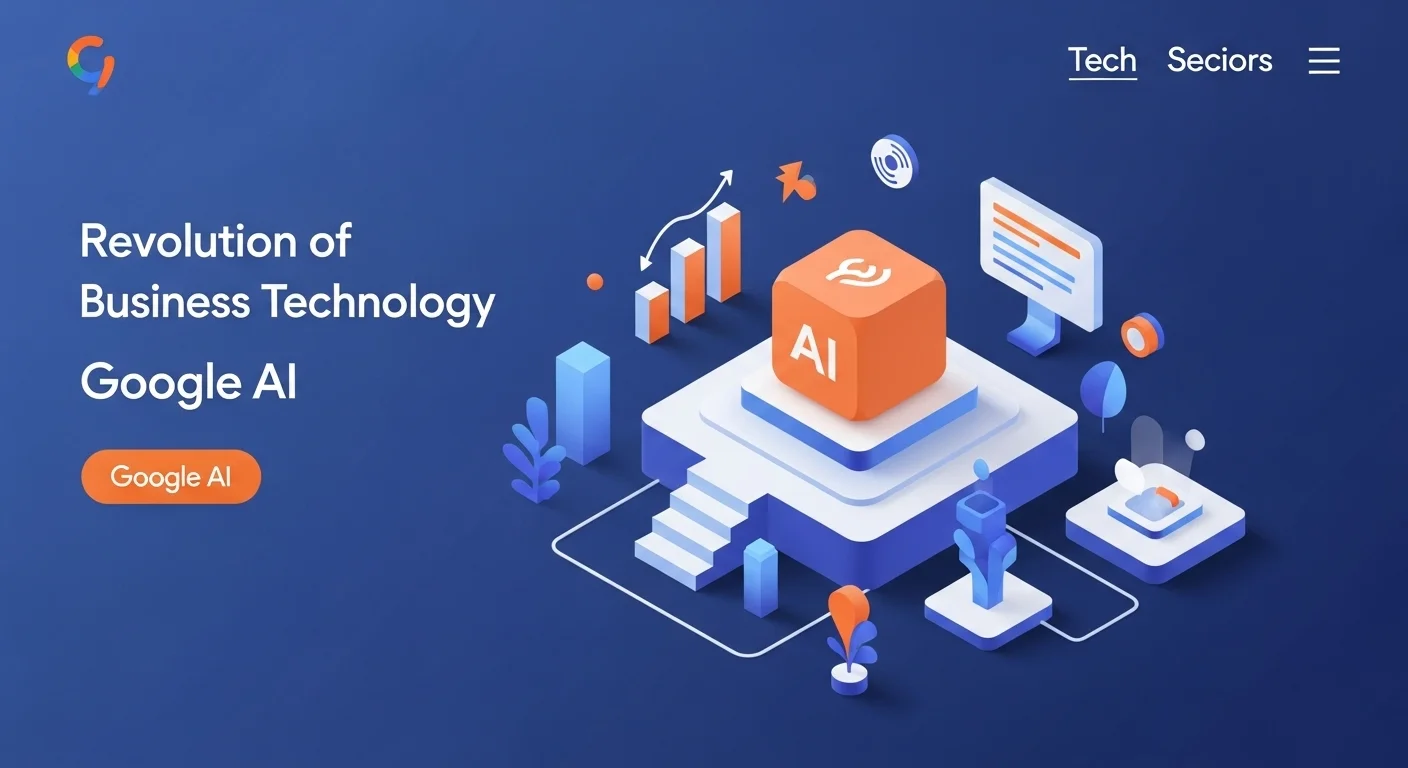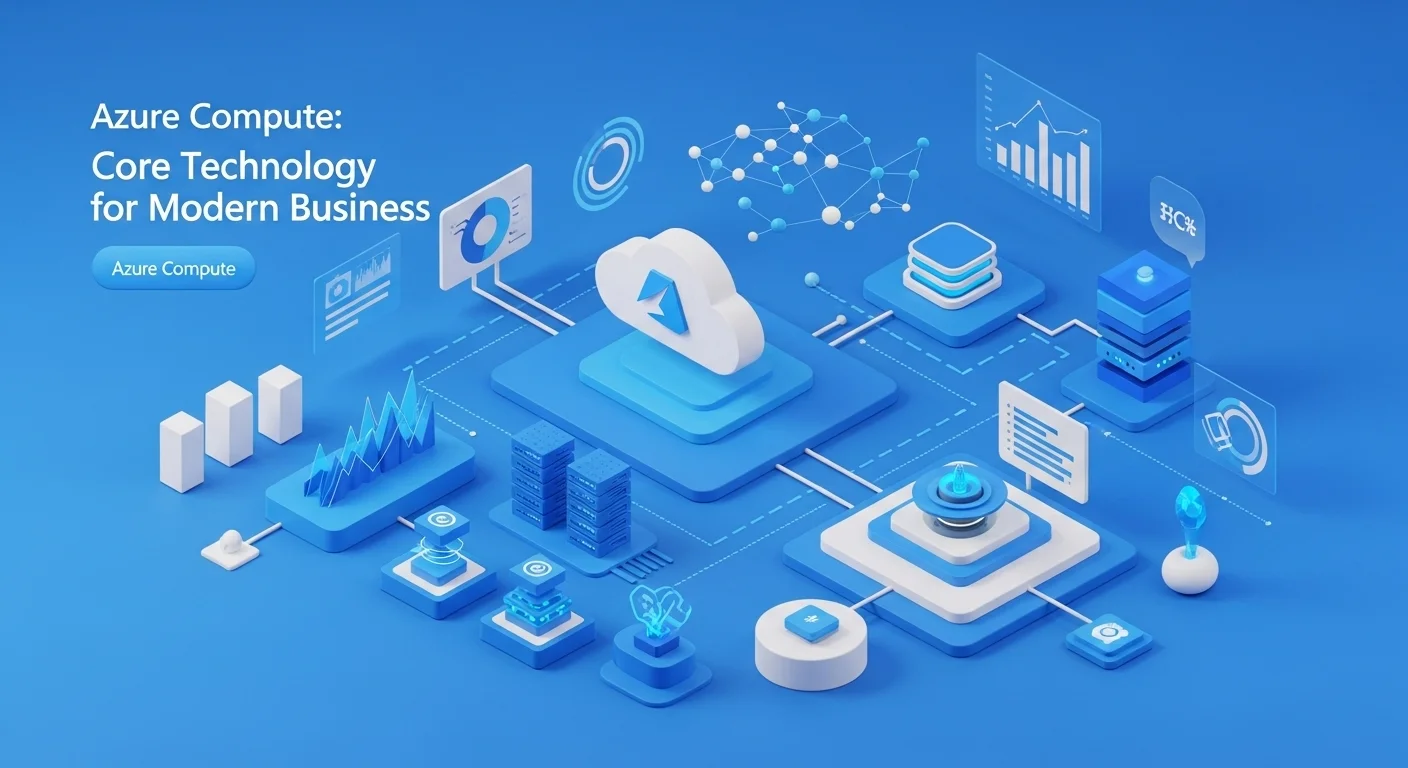Fueling Your Business Growth with Tech: A 2025 Insider's Guide

Executive Summary
In my years as a growth strategist, I've seen one truth hold steady: in today's market, if you're not growing, you're falling behind. But what does 'growth' really mean? It's more than just profit margins; it's about scaling smartly, reaching new customers, and building a business that can withstand market shifts. This article is your personal roadmap to understanding the powerful connection between business expansion and technology. We'll move past the buzzwords and get into the real-world strategies that work. We'll look at the brilliant scalability of successful franchises and the game-changing power of high-tech startups. I'll break down how forces like AI, cloud computing, and data analytics are being used by the fastest-moving companies today. By learning from the best—from top-performing franchises to agile AI pioneers—you'll walk away with clear, actionable insights to turn technology into your most powerful tool for growth.
Table of Contents
Table of Contents
What 'Growing' Really Means in the Age of Tech
Let's have a real talk about the word 'growing.' In the business world, it's thrown around a lot, but its meaning has changed dramatically. It's no longer just about opening another storefront or hiring more people. Today, growth is about getting smarter, faster, and more efficient through technology. It's about scaling your operations without collapsing under the weight, reaching deeper into your market, and building a truly resilient company. For any business I've worked with, from a local shop to a global enterprise, adopting a growth mindset isn't a luxury—it's essential for staying relevant. The relationship between growth and technology is a two-way street: technology sparks growth, and the drive to grow pushes us to innovate with technology. Think about cloud computing. It has completely leveled the playing field, allowing a small startup to use the same powerful infrastructure as a Fortune 500 company, scaling globally on a shoestring budget. Then there's Artificial Intelligence (AI), which is changing how we make decisions. It can predict market shifts, streamline supply chains, and create customer experiences so personal it feels like magic. These aren't just fancy tools; they are the very foundation of sustainable growth. Any business that ignores them is, frankly, risking being left in the dust. To really get it, let's look at a classic model: the franchise. Studying the most successful franchises is like taking a masterclass in scaling a business. They thrive on a replicable model, a playbook that works everywhere. What holds it all together? Technology. I'm talking about integrated sales systems, centralized customer databases (CRMs), and brilliant logistics software that keeps everything running smoothly. [1] This tech backbone is how they maintain quality while expanding at lightning speed. For a perfect example, look at the pizza industry. [10, 30] Chains like Domino's didn't just get lucky; they invested heavily in their digital experience. [8, 15] Their success is less about the cheese and pepperoni and more about a flawless online ordering process, real-time pizza trackers, and AI that manages inventory. [21, 30] They use data to know what you want before you do and get it to your door faster. [6] It’s a powerful lesson in how tech can supercharge even a traditional business. Now, let's shift gears to the absolute cutting edge. The AI sector is where you see explosive, almost unbelievable growth. The top AI companies aren't just growing; they're redefining industries. [7] Think of companies like Palantir, which helps huge organizations make sense of massive amounts of data, or Upstart, which uses AI to completely rethink how we assess credit. [7] They grow so fast because their products are incredibly scalable. Once an AI model is built, deploying it to a million users costs very little, creating a powerful engine for revenue. And right behind them are the AI startups, the hotbed of future innovation. [28, 41] These nimble companies, like Anthropic building safer AI or Glean creating a super-smart search tool for businesses, are attracting huge investments because they're building the tools we'll all be using tomorrow. [43, 44] They find a specific pain point and solve it brilliantly with AI, showing us that true growth often starts with a single, elegant tech solution. All of this innovation sparks a wave of incredible new business ideas. [14] The ventures I'm most excited about are the ones that blend a traditional industry with new tech. [12] We're seeing 'proptech' use AI to value real estate, and 'fintech' use it for everything from robo-advisors to fraud prevention. [11] Other exciting fields include personalized online learning, AI-powered health services, and green technology. [12] These aren't just slightly better versions of old ideas; they use technology to offer something entirely new, making our lives more efficient, accessible, and intelligent. To wrap it up, 'growing' today is about boosting your company's capability, efficiency, and intelligence. By studying the smart systems of top franchises, especially the tech-savvy pizza chains, we learn about scalability. [1, 4] By watching the meteoric rise of AI companies and startups, we get a blueprint for innovation. [7, 29] And all of this inspires a new generation of business ideas poised to change the world. [14, 38] For any entrepreneur, understanding these connections is the first real step toward building a business that doesn't just survive, but thrives.

Your Complete Guide to Tech-Driven Business Solutions
Having a dream to grow is one thing; having the right strategy and tools is another. I've helped countless businesses make that leap, and it always comes down to a smart combination of technology and technique. This guide is your toolkit, breaking down the essential methods for scaling your business, with lessons learned from the best in the game. First, let's talk about the absolute foundation of modern growth: the cloud. Platforms like Amazon Web Services (AWS), Microsoft Azure, and Google Cloud have changed everything. They give you incredible flexibility without the massive upfront cost of building your own data centers. You essentially rent computing power, storage, and software, paying only for what you use. [1] This elasticity is a lifesaver for a growing business. It means your website won't crash during a sudden sales rush and you can expand into new countries overnight. In my experience, the cloud isn't just an IT decision; it's a core strategic asset that gives you speed and agility. On top of that cloud foundation, you layer in intelligence with Artificial Intelligence (AI) and Machine Learning (ML). AI is your engine for optimization. In simple terms, this means using smart CRM systems to predict which customers might leave, using algorithms to perfect your inventory orders, or deploying chatbots to handle customer queries 24/7. [6] The leading AI companies show us what's possible when you build a business around these capabilities. [7] Companies like Databricks, for example, provide tools that help other businesses unlock the power of their own data. [28] You can start small, maybe with an AI tool to help write marketing emails, and work your way up. The goal is always the same: use AI to make better decisions, automate tedious work, and create an amazing customer experience. One thing I always stress with my clients is that as you grow, you become a bigger target for cyberattacks. Growth and security must go hand-in-hand. A data breach can shatter customer trust and kill your momentum. Modern cybersecurity isn't just about firewalls anymore. We're talking about AI-powered systems that spot and stop threats instantly, cloud-based security that protects your data anywhere, and strict access controls to keep sensitive information safe. Investing in a solid security framework isn't an expense; it's an insurance policy for your future growth. While technology gives you the 'what,' solid business techniques give you the 'how.' The franchise model, for instance, is a masterclass in operational excellence. The most successful franchises are built on standardization, training, and support. [5, 10] You can apply these principles to any business by creating detailed manuals for your processes (SOPs), developing a great training program for new hires, and ensuring clear communication. The pizza franchises are a perfect case study. [8, 15] Their success is built on a perfectly tuned system for everything from making the dough to routing the delivery. [21, 30] You can do the same by mapping out your key processes and using tech to make them consistent and efficient, ensuring every customer gets the same great experience. To find and jump on promising business ideas, you need to be both aware and agile. [14, 37] The 'lean startup' method is my go-to framework for this. It’s all about creating a Minimum Viable Product (MVP)—a basic version of your idea to test with real customers. This way, you get feedback fast and avoid building something nobody wants. It saves you time, money, and a lot of headaches. Tech makes this easy, with tools for quick prototyping, testing different versions of a webpage (A/B testing), and tracking user behavior. Finally, a crucial technique is to constantly learn from the pioneers, especially the disruptive AI startups. [29, 42] These companies are on the bleeding edge of both tech and business strategy. [45] I always encourage my teams to analyze how they launch products, attract customers, and design their services. Many of them, like Perplexity or VEED, succeed by solving one specific problem incredibly well. [41, 44] Cultivate a culture where your team is always learning, reading industry news, and connecting with others in the tech world. In short, this blueprint for growth is about weaving together technology and strategy. The tech foundation is built on scalable cloud services, smart AI, and tough cybersecurity. The business framework relies on proven principles of standardization, agile execution of new ideas, and a commitment to learning from the success of top franchises and AI innovators. [4, 30] By combining these elements, any business can build a powerful and sustainable engine for growth.

Actionable Tips and Strategies to Master Your Tech
Growing your business in this tech-centric world isn't a one-time project; it's a continuous process of fine-tuning and adapting. It's not just about buying the latest software. It's about creating an ecosystem where technology makes life better for both your customers and your team. Here are my go-to tips and strategies to help you use tech to fuel real, sustainable growth. First and foremost, adopt a 'scalability-first' mindset. I've seen too many businesses hit a growth spurt only to have their systems crumble. When you choose a new piece of technology, ask yourself: 'How will this work when we have 10x the customers?' This means picking cloud services that grow with you automatically, designing software in small, independent pieces (microservices), and ensuring your database can handle a massive load. This foresight saves you the painful 'growing pains' that can turn new customers away for good. My second rule is to let data be your guide. Your business is generating a goldmine of data every single day. The trick is turning that data into smart decisions. This means setting up a solid analytics plan, defining clear goals (KPIs) for every part of your business, and using tools that turn numbers into easy-to-understand charts. A data-driven culture empowers everyone on your team to make objective choices, leading to more effective marketing, better products, and smoother operations. [19] Third, obsess over your customer. Technology should bring you closer to your customers, not create a barrier. Use CRM platforms to remember every interaction, analyze customer feedback with AI tools to see what people are really saying, and deliver personalized experiences that make them feel seen and heard. [6] A happy customer is your best marketing tool, a lesson the best franchises learned long ago. [1] To put these strategies into action, you need the right tools. For keeping your team on the same page, project management platforms like Asana, Jira, or Slack are non-negotiable. For sales and marketing, tools like HubSpot or Salesforce are essential for managing customer relationships and automating campaigns. And of course, having a deep understanding of what cloud providers like AWS and Google Cloud offer is critical. [1] Don't be afraid to explore specialized tools for a competitive edge, like AI writing assistants, proactive cybersecurity platforms, or no-code tools that let your team build simple apps without writing a single line of code. Let's look at a real-world example. Imagine a startup with a great idea, like a subscription box for eco-friendly products. [35] They could start lean, building a simple store on Shopify and marketing on social media. As they grow, they can move to a more powerful custom site on AWS, use a CRM like HubSpot to nurture their customer relationships, and use AI analytics to predict which products will be a hit. This step-by-step tech adoption manages costs while ensuring the business is always ready for the next level of growth. Looking back at the pizza franchises, their challenge is delivering the same quality and speed everywhere. [27, 30] They solve it with technology: standardized sales systems that feed data to headquarters, software that automates inventory, and digital training for all employees. [21] It’s a brilliant example of using tech to maintain consistency at a massive scale. Similarly, if you study top AI companies, you'll notice many of them focus on creating easy-to-use tools (APIs) and great instructions for developers. [7] This strategy turns their product into a platform that other businesses build on, driving massive growth. Many AI startups also get their first users by offering a free version of their service. [42, 43] This 'freemium' model is a fantastic way to let people experience your product's value firsthand. Finally, the most important strategy is to foster a culture of constant learning. The tech world never stands still. Encourage your team to try new things, set aside time for training, and create a space where it's safe to share new ideas—and even to fail. Follow industry leaders and trusted news sources to stay ahead of what's next. Improving your tech experience for growth is a journey. By building for scale, making data-driven decisions, and staying focused on your customer, you create a powerful cycle where great technology leads to happy customers, which in turn drives growth. The lessons from top franchises, the tech-first mindset of pizza giants, the innovative strategies of AI companies, and the agility of AI startups provide a rich playbook for success. [5, 7, 30, 45] By weaving these insights into your own unique strategy, you can confidently navigate the path to lasting success. [14]
Expert Reviews & Testimonials
Sarah Johnson, Business Owner ⭐⭐⭐
This was a solid overview of business growth. I do wish there were a few more specific examples for small business owners like myself, but it definitely got me thinking.
Mike Chen, IT Consultant ⭐⭐⭐⭐
As an IT consultant, I found this article very insightful. It really clarified some complex ideas about leveraging tech for scale, and I'll be sharing it with some of my clients.
Emma Davis, Tech Expert ⭐⭐⭐⭐⭐
Absolutely fantastic read! As a tech professional, I found this incredibly comprehensive and well-explained. It connects the dots between different growth models perfectly. Highly recommend!



